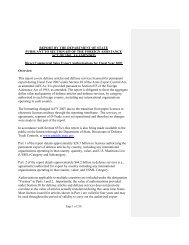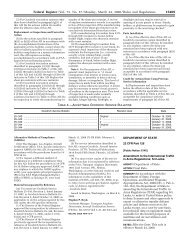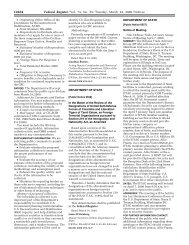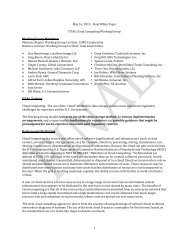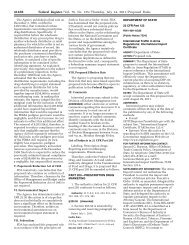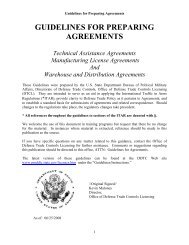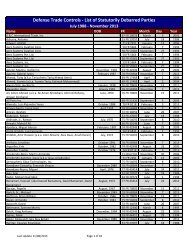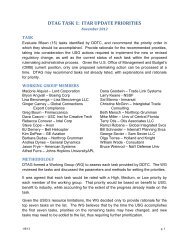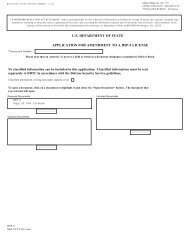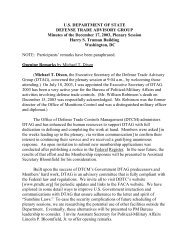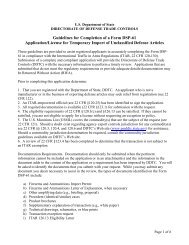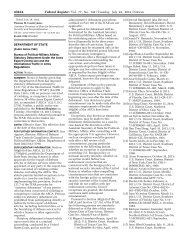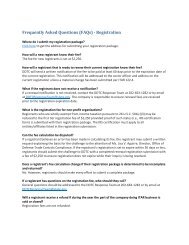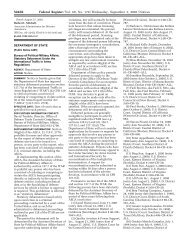Cloud Computing - Directorate of Defense Trade Controls
Cloud Computing - Directorate of Defense Trade Controls
Cloud Computing - Directorate of Defense Trade Controls
Create successful ePaper yourself
Turn your PDF publications into a flip-book with our unique Google optimized e-Paper software.
2. Community <strong>Cloud</strong> – The Community <strong>Cloud</strong> infrastructure is intended for use by<br />
a specific community <strong>of</strong> consumers with shared interests, concerns or<br />
requirements.<br />
ii. Private cloud – a cloud infrastructure that is open only to a specific class <strong>of</strong> users.<br />
Private clouds include cloud service providers that <strong>of</strong>fer “ITAR compliant” services,<br />
which may include contractual obligations to locate all <strong>of</strong> the cloud infrastructure in the<br />
United States, utilize only network administrative personnel that are U.S. persons,<br />
encrypt data during transmission to, within and from the cloud, encrypt data at rest<br />
(wherever located in the cloud) and provide the contracting party with control <strong>of</strong> user<br />
authentication and access to data.<br />
Table 1<br />
b. The DTAG considered the benefits and potential risks associated with these environments<br />
including management and access control and determined that use <strong>of</strong> a Private cloud <strong>of</strong>fers less<br />
risk than a Public cloud (including Hybrid and/or Community <strong>Cloud</strong>). This determination is<br />
based on the services and infrastructure being maintained on a private network with access<br />
limited to a specifically identified group. However, it is also the most expensive to implement in<br />
terms <strong>of</strong> s<strong>of</strong>tware, infrastructure and maintenance. Additionally, many compliance risks<br />
inherent in electronic data storage reside in all types <strong>of</strong> cloud implementation arrangements. The<br />
DTAG outlined many <strong>of</strong> the questions that should be addressed by U.S. companies prior to<br />
engaging a <strong>Cloud</strong> Service Provider. (See Attachment A)<br />
c. Using the aforementioned scenario, the DTAG evaluated the following::<br />
i. Should XYZ Company engage with ABC, <strong>of</strong>fering the Public, Private, Hybrid or<br />
Community cloud data centers?<br />
1. Assuming that each cloud system has the same technical capabilities, the private<br />
cloud would allow XYZ the greatest control over the cloud however it would<br />
also be most expensive and least flexible to handle the needs <strong>of</strong> XYZ Company.<br />
2. Alternatively, the DTAG evaluated the possibility that if the information is<br />
encrypted using a U.S. Government approved encryption method; this may<br />
provide the necessary security and access controls to allow storage <strong>of</strong> technical<br />
data in all <strong>of</strong> these environments.<br />
3



